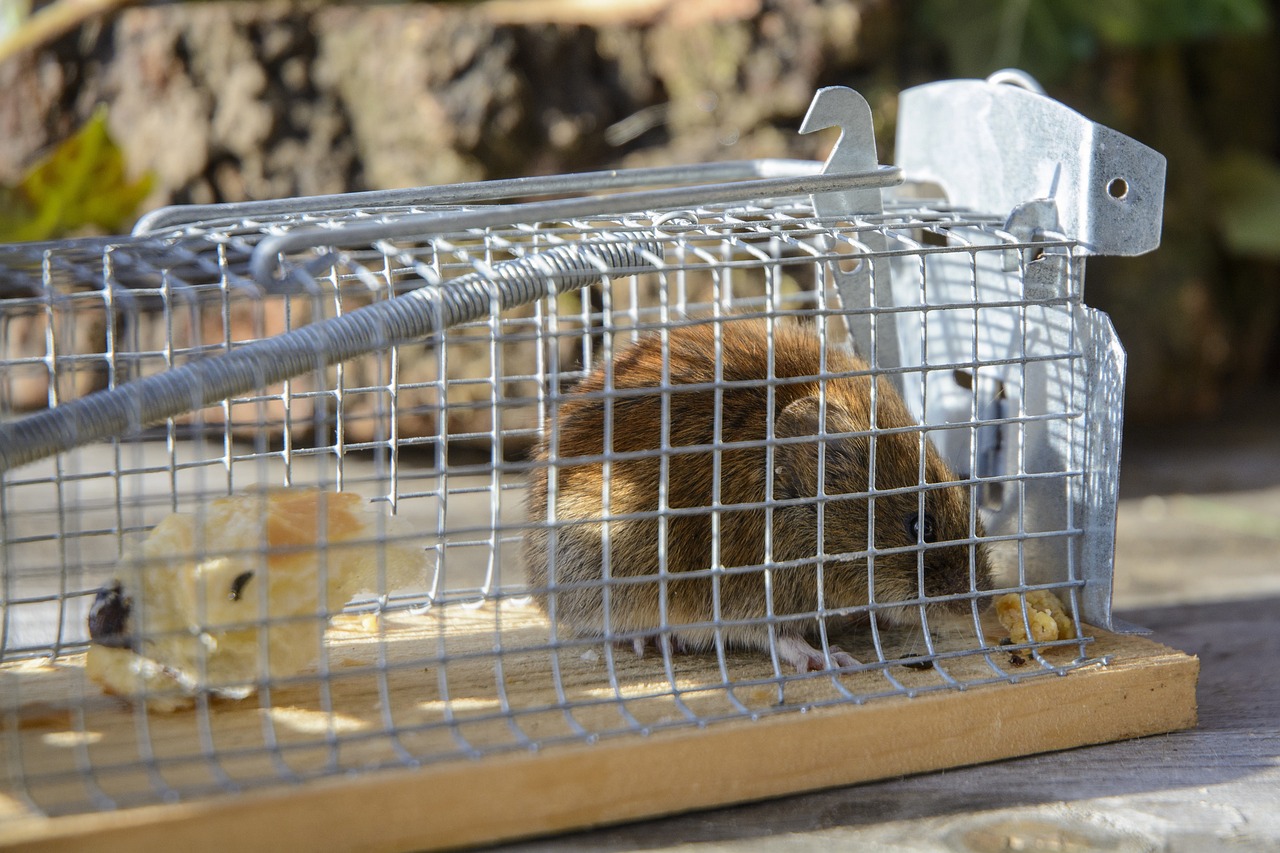How to Keep Mice Out of Your Home

Mice are notorious for finding their way into our homes, especially during the colder months. Not only can they be a nuisance, but they also pose health risks by spreading diseases. If you're wondering how to keep mice away and prevent them from invading your living space, this comprehensive guide is here to help. Follow these tips to mouse-proof your home effectively.
Seal Entry Points
One of the most effective ways to keep mice out of your home is to seal any potential entry points. Inspect your house for gaps, cracks, and holes in walls, floors, basement, foundations, or in the crawl space. Use steel wool or caulk to seal these openings, as mice can easily gnaw through softer materials.
Seal Gaps Around Doors and Windows
Inspect doors and windows for gaps, and use weatherstripping to seal any openings. Mice can squeeze through surprisingly small spaces, so pay attention to even minor gaps. Installing door sweeps at the base of exterior doors can also help prevent mice from entering.
Keep a Tidy Environment
Mice are attracted to food sources and cozy nesting spots. Reduce their motivation to enter your home by maintaining a clean and clutter-free environment. Regularly sweep and mop floors, clean crumbs from countertops, promptly wipe up any spills, don't leave unwashed dishes overnight. Declutter storage areas to eliminate potential nesting sites.
Close Off Access to Food Sources
To deny mice access to potential source of food, store dry goods such as cereals, bread, pasta, and other grains in airtight containers made of metal, glass, or thick plastic. Ensure that pantry shelves are clean and free of spilled food.

Be Mindful of Pet Food
If you have pets, be mindful of where you place their food bowls. Avoid leaving pet food out overnight, and store it in sealed hard plastic containers when not in use. Mice are attracted to the scent of pet food and may enter your home if it's easily accessible.
Proper Waste Management
Dispose of garbage regularly and use bins with tight-fitting lids. Mice are scavengers, and an easily accessible trash can be a significant attraction. Ensure that outdoor trash bins are kept away from the house and are rodent-proof.
Use Natural Repellents
Certain scents are known to repel mice. Peppermint oil, for example, is disliked by mice and can be used as a natural deterrent. Soak cotton balls in peppermint oil and place them strategically around entry points or areas prone to mouse activity. Replace the cotton balls regularly to maintain the potency of the scent.
Regularly Inspect Attics and Basements
These areas are commonly overlooked but can be prime entry points for mice. Inspect attics and basements regularly, sealing any gaps or cracks you find. Consider using wire mesh to cover ventilation openings to prevent mice from entering while still allowing proper airflow.
Set Traps Strategically
Traps are an effective way to catch mice already inside your home. Place snap traps or humane traps in areas where mice are likely to travel, such as along walls and in corners. Check the traps regularly and relocate any caught mice away from your home if using humane traps.

Elevate Firewood and Garden Supplies
If you have a garden or store firewood, keep these items elevated and away from the exterior walls of your home. Mice often use these outdoor items as hiding spots before finding their way inside. Elevating them makes it less likely for mice to establish nests near your home.
Consider Electronic Repellents
Ultrasonic devices emit high-frequency sounds that are irritating to mice but generally inaudible to humans. Consider using electronic repellents in areas where mice are a recurring issue. Keep in mind that these devices may take some time to show results.
Install Motion-Activated Lights
Mice prefer to stay hidden in the dark, so installing motion-activated lights around the perimeter of your home can discourage their presence. The sudden illumination can startle mice and make them think twice before approaching your property.
Consider Getting a Cat
If you're open to having a pet, consider getting a cat. Cats are natural hunters that can help keep the mouse population in check and their presence alone can deter mice from entering your home. The scent of a cat may be enough to keep mice at bay.
Note that getting a cat is a significant commitment and that pets should not be adopted unless you are willing to provide a long-term home.
Keeping Mice Out of Your Home
Mouse-proofing your home requires a combination of strategies, addressing both potential entry points and factors that attract mice. By following these additional detailed tips, you'll create an environment that is less inviting to mice, ultimately minimizing the chances of an infestation. Consistent effort and a proactive approach will help you maintain a mouse-free home year-round.
When Should You Call A Mouse Exterminator?
Though you can take many precautions to keep mice out of your house, sometimes mice still find their way indoors. You should call a rodent exterminator when you notice visible signs of mouse infestation, such as:
- Mouse Droppings: Finding small, pellet-like droppings the size of a grain of rice in areas where food is stored or along walls.
- Gnaw Marks: Evidence of gnawed wires, wood, or other materials, indicating rodent activity.
- Chewed Packaging: Finding food packaging or containers with chew marks or holes.
- Visible Sightings: Frequent sightings of mice, particularly during daylight hours when they are not typically active.
- Foul Odor: A musky or ammonia-like smell in areas where mice are active.
- Footprints: Discovering small footprints or tracks, particularly in dusty or muddy areas.
- Mouse Nests or Burrows: Discovering nests made of shredded materials or burrows in hidden areas.
- Unusual Pet Behavior: Pets exhibiting excessive barking, scratching, or pawing at certain locations.
- Unexplained Noises: Hearing scratching, scurrying, or squeaking sounds, especially during the night.
- Health Concerns: Unexplained illnesses or symptoms that may be linked to rodent-borne diseases.
- Dead Mice: Discovering deceased mice in and around your living space, which may indicate a larger infestation or the use of ineffective control measures.
Despite your DIY efforts, if you suspect a rodent infestation, or if you're concerned about health risks associated with diseases rodents carry, calling an exterminator is advisable. Large-scale infestations, recurring issues, and evidence of diseases should prompt immediate action. Pest control professionals can handle the situation effectively, identify underlying causes, and implement measures to prevent future pest infestations.
If you are looking for exceptional professional rodent control, look no than Frontline Pest Control. With a thorough inspection, customized treatment plan, and recurring servicing, we guarantee that we can get rid of mice and rats for good. Contact our team today!

